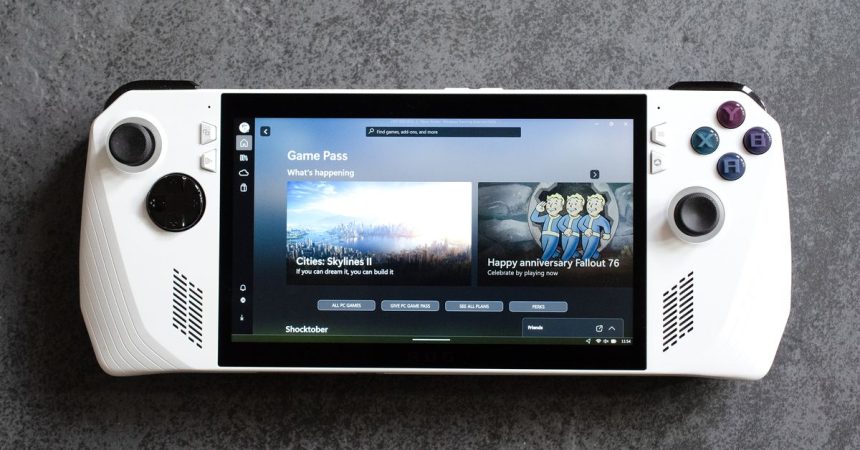The future of handheld PC gaming is poised for a significant transformation, with Microsoft leading the charge to merge the best aspects of the Xbox ecosystem with the versatility of Windows. Jason Ronald, Microsoft’s VP of “Next Generation,” has hinted at a fundamental shift in the Windows handheld gaming experience within this calendar year. Currently, Windows on handheld devices offers a suboptimal gaming experience, often requiring users to navigate cumbersome interfaces and grapple with compatibility issues. Recognizing these shortcomings, Microsoft aims to streamline the experience, borrowing from the console-centric design of Xbox to prioritize player accessibility and game library management. This move signifies a departure from the traditional Windows desktop paradigm, focusing instead on creating a seamless, console-like experience on handheld PCs.
Microsoft’s vision involves leveraging two decades of innovation in the console space, specifically the Xbox operating system’s foundation on Windows, to bridge the gap between console and PC gaming. This integration will allow for the transfer of key console features and infrastructure to the broader Windows ecosystem, enhancing the handheld gaming experience. The company plans to simplify the user interface, moving away from the complexities of the traditional Windows desktop and centering the experience around the player’s game library. This approach echoes the streamlined functionality of consoles, where users can quickly access and launch their games without navigating through layers of menus and settings.
The current state of Windows on handhelds presents several challenges, notably the lack of intuitive controller support and an interface that prioritizes keyboard and mouse input. This creates a disconnect for gamers accustomed to the console experience, where controllers are the primary input method. Microsoft acknowledges these limitations and is actively working on improving fundamental interaction models within Windows to ensure a more native and gaming-centric experience, regardless of the input device used. This involves optimizing thumbstick support and gamepad integration to provide a seamless and intuitive gaming experience on handheld devices.
The overarching goal is to create a unified gaming ecosystem where players can seamlessly access their games across various devices, including handheld PCs. This integration will blur the lines between console and PC gaming, offering a consistent and high-quality experience regardless of the platform. Microsoft aims to achieve this by bringing the familiar and user-friendly aspects of the Xbox interface to Windows handhelds, effectively hiding the traditional desktop environment and its associated complexities. This will allow players to focus solely on their gaming experience, without the distractions of a full-fledged operating system.
The transformation of Windows handheld gaming will be an ongoing process, with Microsoft committing to long-term investments and continuous improvements. While specific details remain scarce, the company promises to share more information later this year, outlining their plans for merging the Xbox and Windows experiences. This merging will involve not only interface enhancements but also improvements to underlying infrastructure and core functionalities. The focus will be on creating an environment that is tailored for gaming, regardless of the device, providing a seamless and immersive experience for players.
The move to integrate Xbox features into Windows on handhelds represents a significant step forward for PC gaming, offering the potential for a more accessible and streamlined experience. By leveraging the strengths of both ecosystems, Microsoft aims to create a unified platform that caters to the needs of both console and PC gamers. This strategy reflects a broader trend in the gaming industry towards cross-platform compatibility and accessibility, empowering players to enjoy their games on their preferred devices without compromising on quality or performance. The envisioned future of Windows handheld gaming is one where the complexities of the operating system fade into the background, replaced by a console-like experience that prioritizes player convenience and immersive gameplay.



